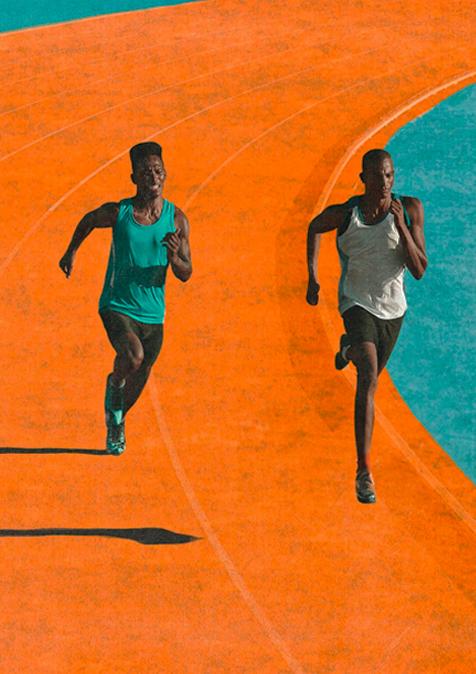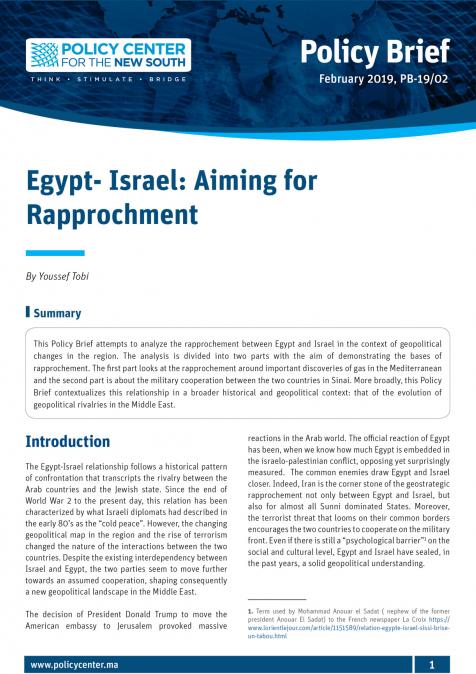Publications /
Opinion
In today’s world, sports have taken on a role traditionally held by religion, offering a deep sense of community, purpose, and identity to people. Its impact has been magnified by globalisation, digital technology, social media, and the rise of streaming platforms. These elements create a sense of immediacy and connection that transcends geographical boundaries. Consequently, sports have attained an unparalleled level of relevance and influence, capturing the hearts and minds of people in a way few other societal institutions can. Additionally, sports have become a tool for soft power, economic growth, and a catalyst for social cohesion. With the global sports industry now valued at over US$500 billion, it has garnered significant interest from private equity firms and sovereign wealth funds, highlighting its vast financial power and influence.
In this landscape, nation-states are developing strategies to maximise the benefits of sports. Examples include Saudi Arabia’s Vision 2030, Morocco’s ambitious sports development initiatives, and the “Visit Rwanda” campaign, which has significantly boosted Rwanda's tourism industry. Additionally, the power dynamics observed in international sporting events like the Olympics and the World Cup underscore the role of sport as a political vehicle.
Countries have long used sports to advance political agendas, enhance national prestige, and foster international relationships. Historical examples include Nelson Mandela’s use of rugby to unify South Africa post-apartheid, the influence of economic sanctions and boycotts during the 1980 Moscow Olympics, and Jesse Owens’ defiance of Nazi ideology with his victories in the 1936 Berlin Olympics. These instances illustrate the significant intersection of sport and politics. Given these dynamics, important questions arise around the role of sports diplomacy.
Simply put, sports diplomacy involves a country using sport to advance its strategic interests and policy goals. It is a subset of “soft power”, a term used to describe how a country seeks to achieve its objectives by appealing to and attracting others. According to Harvard Professor Joseph Nye, such endeavours enable a country to “engage with the world, communicate a set of values it seeks to uphold, project an image it wants others to have of it, and gain access to resources and markets around the world”. Nye identifies three pillars of soft power: political values, culture, and foreign policy.
Sports diplomacy is rapidly becoming an essential area for all countries to engage with, due to its significant economic, diplomatic and social benefits and costs. How, then, can African states position themselves for success?
Firstly, African policymakers need to recognize the strategic importance of the sports industry and view it as a key growth driver rather than just a recreational activity. This shift towards a more commercial approach is crucial. Although Africa’s revenue from sports sponsorships exceeds US$2 billion annually, it represents less than 5% of the global market and remains underrepresented in media coverage. However, with advancing digital trends and a growing market of over 1 billion people, the continent offers a consumer base that cannot be ignored. This presents a compelling opportunity to transform Africa’s sports industry into a major attractor of foreign direct investment.
To achieve commercial success, African policymakers should focus on four primary areas: developing Africa’s talent pipeline, expanding television and media rights, increasing sponsorship, and growing merchandise sales. These efforts should be supported by significant investment in infrastructure—both physical and digital—to enable scalable development of these emerging industries. Investing across the sports value chain has the potential to create numerous jobs and stimulate local economies.
Secondly, recognizing the importance of soft power is crucial. England’s Premier League stands out as the nation’s most successful sporting export and key soft power asset. Similarly, the global expansion of the NBA in the 1990s popularized American pop culture and demonstrated the virtues of American-style capitalism, democracy, and liberalism to a global audience. African countries could benefit from adopting a similar strategy. For instance, hosting an F1 Grand Prix in South Africa could significantly boost the country’s soft power, enhancing its global visibility in a manner akin to the 2010 FIFA World Cup. Successfully hosting such a high-profile event would not only elevate South Africa’s international and continental standing but also leave a lasting positive impact on its infrastructure, tourism and national identity, whilst improving perceptions of the continent as a whole.
Thirdly, talent retention and skills development are crucial. A major challenge in Africa is the insufficient infrastructure and resources for sports, which often compels the continent’s most talented individuals to seek opportunities abroad. For instance, the South Sudanese Olympic basketball team—composed largely of refugees from a country founded only in 2011, grappling with civil war, and lacking indoor basketball facilities—illustrates the extent of these challenges. Despite their raw talent, the absence of local infrastructure, facilities, and grassroots development programmes prevents athletes from realizing their full potential. Many South Sudanese players have advanced their skills in more developed basketball leagues abroad, particularly in the United States. While this diaspora network helps bridge the gap between local talent and international standards, it often results in these athletes representing their adopted countries rather than their countries of birth, thus depriving Africa of its most skilled talent.
Despite these significant constraints, there are notable success stories. Morocco, for instance, has emerged as a key African hub and talent incubator. Its world-class sports facilities, such as the Mohammed VI Football Academy, played a crucial role in the Moroccan national team’s success at the Qatar 2022 World Cup. Additionally, Morocco’s dedicated national agency, Sonarges, manages and maintains stadiums for sporting events. This integrated and forward-thinking approach is already yielding positive results for Morocco’s sports industry. However, navigating the realm of sports diplomacy is fraught with challenges. While the potential for sports diplomacy to enhance Africa’s image both internally and externally is significant, the path to achieving this is laden with obstacles.
The first, and perhaps most significant, challenge is the lack of sporting infrastructure needed to retain talent. While there are notable exceptions, such as the running camps in Iten, Kenya, and the success of Moroccan football, the current infrastructure is often inadequate to handle the demands of major global sporting events. Despite the dominance of African athletes, particularly from East Africa, in major marathons over the last 30 years, it is striking that three of the six major marathons are held in the United States, with none taking place on the African continent.
The issue of talent retention is frustratingly circular. Without investment in sports infrastructure, athletes will continue to emigrate in search of better opportunities. However, without these athletes contributing to local sporting leagues, it is challenging to build a robust network that supports and develops talent to its full potential. This potential extends beyond athletics; sport often serves as a vehicle for increased social mobility, lifting families and communities out of poverty and providing greater access to resources and education—sometimes driven by a single success story.
Athletes in the diaspora often face a difficult choice between representing the country of their heritage or the country where they have settled. The complexity of this decision cannot be understated. Forced colonial migration has dispersed African populations globally, with many athletes born in places far removed from their ancestral roots. The intersection of sports and politics intricately weaves together identity, migration, socio-economic status, and other issues central to societal discourse. The existence of the Refugee Olympic Team underscores the resilience of the human spirit amidst conflict and displacement, serving as a powerful message of hope to millions of forcibly displaced people worldwide.
Perhaps the greatest obstacle to African investment in sports diplomacy is a fundamental question: Why? In a world plagued by warfare and genocide, there are pressing concerns that overshadow the pursuit of physical excellence. How can one advocate for investment in teams and stadiums when basic necessities like food, water, and electricity are lacking? How can one promote the luxury of sports when fundamental educational needs for half the population remain unmet? The ability to face opposition head-on and still extend a handshake at the end of a match is a skill often lost in the modern political landscape. Debates frequently escalate into arguments, and discussions on complex social issues are often reduced to binary choices—either for or against. The art of compromise and constructive engagement seems to have been forgotten, yet sports may be the vehicle through which it can be rediscovered.
Issues that are too contentious to tackle head-on might be approached through the lens of a playing field rather than a meeting room. Sport does not detract from the continent’s pressing issues but offers a means to address them. From engaging youth in sports to lift generations out of crime and poverty, to the economic benefits of developing women’s sporting teams and leagues, there are numerous small steps in the sporting world that can draw Africa closer to a more prosperous future. To overcome the challenges facing Africa, the continent must present a united front, viewing competition as a constructive challenge rather than a contentious struggle. For instance, recent conflicts, such as the dispute over a jersey depicting Western Sahara, which led to the cancellation of a CAF semi-final between Algeria and Morocco, highlight the pitfalls Africa must avoid. Instead of allowing such disputes to derail progress, the focus should be on a spirit of competition and collaboration.
As the world begins to shift its perception to the reality of Africa, the continent cannot overlook the opportunity for influence that sport offers. In an increasingly polarised world, where bridges are scarce, sport has the power to foster dialogue and connection—through ball, boot, or track. This potential is both an opportunity and a necessity. In times when basic communication of one’s humanity can be challenging, sport’s capacity to transcend borders presents a unique chance to unite in the face of widening divisions. Only by working together can Africa rise higher, move faster, and reach new heights.










